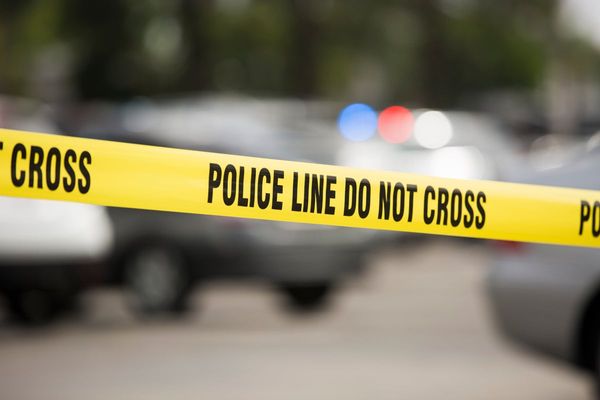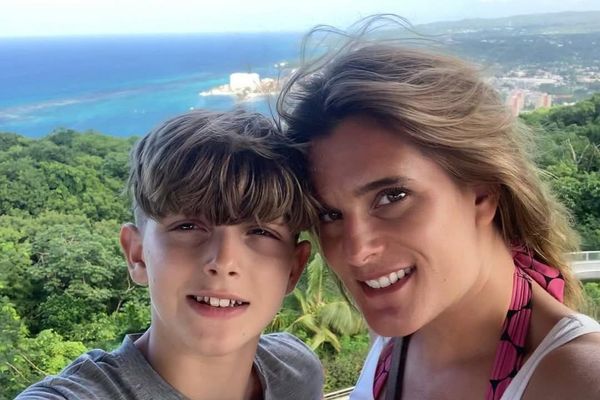Brian Hioe: Could you introduce yourself to readers who may not know you?
L: I’m Zoe Lee, I’m a lawyer. My Facebook page is called Better Call Zoe. I also do a podcast, which is about weed. I started a fan page on Facebook in March about pot-related issues.
I was originally at an NGO called the Wild at Heart Legal Defense Association. It’s quite an interesting NGO because it only handles pro bono environmental cases, and people usually don’t have the money for these cases. Like the Asia Cement mine in Hualien. The indigenous there were scammed out of their land 20 or 30 years ago, there’s no way they would have enough money to sue this large conglomerate. These are the kinds of issues that Wild at Heart works on.
This was my first job as a lawyer. My first case was suing Ma Ying-jeou for failing to do his official duty overseeing the construction of the Taipei Dome. He was the Taipei mayor then. That’s how I got started as an environmental lawyer.
About being a human rights lawyer? At the end of 2017, the Tsai administration made changes to the Labor Standards Act. Everyone was protesting in Taipei then. I brought some food from a wedding banquet to the protest for everyone because the lawyers there were taking shifts.
From the Sunflower Movement onward, lawyers got into the habit of staying at protest sites, acting as a buffer between police and the people. I was there during the Sunflower Movement as well, I had just passed my bar exam them.
So human rights lawyers will go to protests. I would go to the ones about issues with similar values to me, such as the labor movement, the environmental movement, and others. There was one protest where I ended up in a police van. The protesters were originally just sitting on Ketagalan Boulevard, but then they suddenly were waded in by razor wire. Later on, the police surrounded everyone. They started pulling us onto the police bus one-by-one. I saw a participant being carried by four police officers and I shouted, “You! You! You! I’m Zoe Lee, a lawyer! Do you want me to represent you?”
He shouted, “I appoint you as my lawyer!” I shouted, “Okay! Then I will go onto the police van with you.” And just like that, I crawled into the van. I wasn’t even wearing my lawyer’s robe, I just had my license on me.
Originally, they were hitting people on the van, but when I climbed in, I shouted, “I’m Zoe Lee, a lawyer! Does anyone need representation?” After that, the police stopped hitting people.
That’s the first time I got into a police van. The second time I did was reported on the news. I was more used to it by then.

B: After participating in social movements, why did you decide to enter elections? How did you end up joining the Green Party?
L: I always participated in social issues and I participated in the marijuana legalization movement for some time. Drug users are seen as criminals, but they should be seen as people suffering from an illness. It’s because of an illness that I might end up using heroin, amphetamines, cannabis, or ecstasy. If they’re sick, why do you punish them? There’s no point in imprisoning them.
To talk about it a bit differently, if I had a knife and I was hurting myself with it, you wouldn’t treat me as a criminal. But if I am using a specific drug to hurt myself, you’d put me in prison.
People don’t see tobacco, betel nuts, alcohol, or even sugar as dangerous in the same way. I wanted to think of some way to help these people. The people I’m more familiar with are cannabis users, so that’s why I focused on that. I started telling them what to do if they were caught.
They’d ask me, “Do I have to go for drug testing? Can I go to rehab instead?” I was responding to their questions for free online originally. Or if they were caught, they might call me up in a panic and I’d be like, “I’ll think of something to help you.”
I decided to go to the Green Party to lobby then. I was promoting the use of medical marijuana. Cannabis can have medical uses. It can help with depression, glaucoma, Alzheimer’s, nauseousness, and allow for appetite when many medicines make you throw up. I was lobbying for the opening up of these things. For example, CBD isn’t a drug at all and you can buy it anywhere. Why are there all these issues in Taiwan then?
So I told the Green Party my thoughts. I brought a CBD tincture and a hemp rope, the two important components of cannabis. One is CBD and the other is a textile. I talked to them for an hour. A week later, they messaged me and said: “We just finished our meeting. We decided to try and recruit you as a party list candidate, to give you a platform to talk about marijuana legalization. I said, “What?! What?!”
This is how I became a party list candidate for the Green Party.

B: What do you think is particularly significant about this year’s elections?
L: It’s very apparent that this year is focused on resisting China and protecting Taiwan. Because of the events in Hong Kong, everyone is very alert toward China right now.
In the last election, people kept talking about the need to drag down the KMT. But after the end of the Sunflower Movement, many young people felt dissatisfied. Four years later, what have we learned?
The Green Party is an environmental party. If the Chinese government was an environmental-friendly party, our views might be different. Some might say that politics and environmental issues are separate issues. It’s not like that. Environmental issues are political ones. Everything is politics.
If you really think a political party that uses toxic tear gas everywhere is friendly to the environment, that means you don’t care about the environment or human rights in accepting this political rule. So it’s very clear why we should stand for protecting Taiwan and resisting China.
We’ve been filing a lot of lawsuits lately. We filed one against Guo Guan-ying for stating that he was overseeing the election for the CCP. Today we filed one against Han Kuo-yu.
B: Do you think the present election reflects increasing participation by Taiwanese young people?
L: Yes. I think this is a good thing. You can see that of the young people that emerged after the Sunflower Movement and we’re usually not second-generation politicians like Chiang Wan-an. He took over his father’s old electoral district and his father was riding on Chiang Kai-shek’s coattails.
The Taiwan Statebuilding Party has a very young candidate, Yan Ming-wei, for example. He did something very interesting in the past, throwing a copy of Formosa Betrayed at Ma Ying-jeou.
Why did these people not run for office before? Because in the past, when young people participated in politics, everyone felt that we could only work as assistants, that we should leave matters up to those more experienced. But later, we felt that if these people could get voted into office, why not run ourselves? More and more young people discovered that we’re not any worse than them. OK, boomers. Why not run ourselves?
I’m 31 years old right now and I’m not even among the youngest of the candidates running this time. It’s harder to deceive people now.

B: Do you believe that the way Taiwanese young people stand for progressive causes can be situated as part of international trends?
L: I do think it has to do with international trends. I believe that it’s particularly linked with the spread of the Internet and smartphones, as well as the development of social media. Everyone is connected now. The speed at which information travels is very fast.
I might have seen some fake news on Telegram that later spread to Line. But not too long after, someone will have deciphered that it was fake news. That it was fake news will spread across Reddit, Instagram, Telegram channels, and etc. very fast. This is what young people are good at.
B: Lastly, is there anything you would like to say in closing to readers, both Taiwanese and international?
L: When I first started working, my supervisor told me, “Don’t let them look down on you because you are young.” I had just graduated and my first job was working as a research assistant at the National Palace Museum.
And I hope that young people can go out and vote. I voted for the first time when I was 25. I missed many elections. I was too lazy to go out, I preferred going to watch a movie, to sing karaoke, anything but voting. But my grandfather and grandmother, who were quite old, would go out and vote despite having to walk with a cane. At that point in time, I thought that it didn’t matter anyway.
That’s wrong. We can do it, so long as we don’t give up on ourselves. If you don’t believe in yourself, nobody will save you.
READ NEXT: New Power Party: Chen Jiau-hua, the Iron Lady of Environmental Protection
The News Lens has been authorized to repost this article from New Bloom.
TNL Editor: Daphne K. Lee (@thenewslensintl)
If you've enjoyed this article and wish to receive more story updates, please be sure to follow us on Facebook.
Next article:







